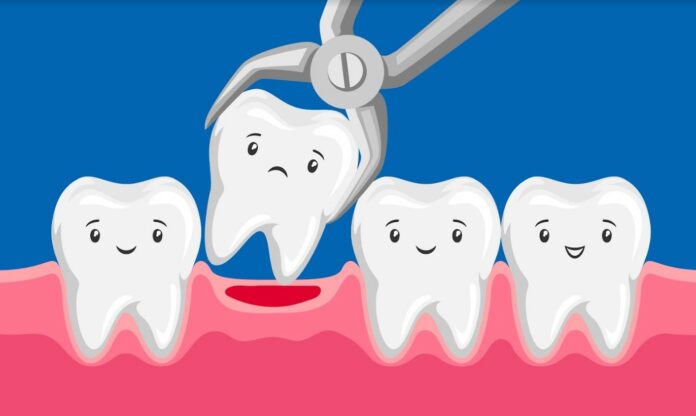Tooth extraction is one of the most common dental procedures. While preserving your natural teeth is always desired, there are times when your dentist will have to remove a problematic or specific tooth.
This article shares six instances when a tooth extraction becomes necessary.
1. You Have Severe Tooth Decay
Tooth decay or cavities are one of the most common dental problems in the world. It occurs when bacteria create a layer of plaque over your teeth which damages the surface of your teeth over time. If cavities aren’t treated, they get bigger and can invade deeper layers of your tooth, resulting in severe toothache and infection.
Sometimes, a dentist may recommend a root canal procedure to treat the infection. However, for more severe infections or too much damage to the teeth due to cavities, extraction is the only option.
2. You Have An Impacted Tooth
A tooth becomes impacted when it’s blocked from coming out or if the gums don’t fully erupt and prevent the tooth from coming out. In general, an impacted tooth is usually the case for wisdom teeth.
Wisdom teeth are your third molars at the back of your mouth. If there’s enough space, a wisdom tooth can erupt without issues. However, with a complete set of teeth, an erupting wisdom tooth may not have enough room to develop or emerge normally. An impacted tooth can grow at an angle towards the back of the mouth or your second molar. Or it can also grow straight up like other teeth but get stuck within the jawbone.
Due to the way it grows, an impacted wisdom tooth can have several complications in your mouth, including damage to the neighboring teeth, decay as food gets trapped between the gum and partially erupted tooth, and cysts. To prevent these issues, your dentist may recommend a wisdom teeth removal procedure.
3. You’re Diagnosed With Periodontal Diseases
Periodontal disease refers to the inflammation and infection of your gums, ligaments, and bones surrounding your teeth. Gingivitis, or the infection of the gums, is the earliest stage of periodontal disease. However, more severe types can impact your periodontal ligaments and your jawbone.
A dentist can help with periodontal treatments such as deep cleaning to restore your gum’s health and other supporting tooth structures. However, if you have severe periodontal disease that causes bone loss and loosening of your tooth, tooth extraction is the only possible option.

4. To Resolve Overcrowding
Extracting one or several teeth might be necessary to eliminate overcrowding. Overcrowded teeth tend to increase your risk of developing cavities and gum diseases due to the hard-to-reach spaces where food debris can get trapped.
In addition, tooth extraction may also be a required treatment if a patient undergoes an orthodontic treatment like braces. Orthodontic procedures aim to properly align the teeth, which may be difficult without enough room. Removing a tooth or two before getting your braces can help create space for the rest of your teeth to move into a straighter position and achieve more effective results.
5. You Experience Traumatic Injuries In Your Mouth
Teeth are tough, but they’re not indestructible. With enough force, your teeth can shatter, fracture, or crack. Traumatic dental injuries may occur from car accidents, sports injuries, or a simple slip and fall.
While most injuries are minor, if your teeth become severely damaged and shattered to the point where restoration isn’t possible, an extraction will be your only option.
6. It’s Too Expensive To Restore Damage Tooth
Restorative dental work can be quite expensive. For instance, severe tooth decay can be saved with a full root canal procedure and then restoration treatments afterward.
However, a root canal can cost from USD$200 for the front tooth up to USD$1,500 for the molars. Then, your dentist may need to put a crown over the tooth to restore its appearance and functionality, adding USD$1,000 or more to your total bill.
If you’re in a situation where you can’t afford expensive treatments, you may consider a tooth extraction and replace it later on when you have the budget. This should address the immediate issue, which is to remove the infection and prevent it from spreading to neighboring teeth.
Takeaway
It’s never exciting to hear your dentist say they’ll need to pull out your tooth. However, sometimes, tooth extraction is the only way to eliminate infections and problematic teeth. That said, when a dentist recommends an extraction, make sure to discuss tooth replacement options with them too. This helps restore function, appearance, and overall oral health.


